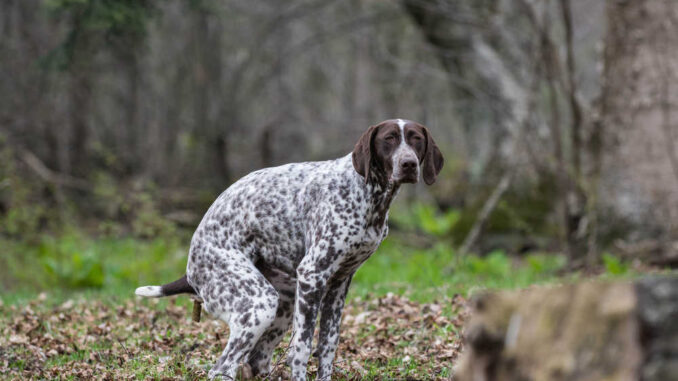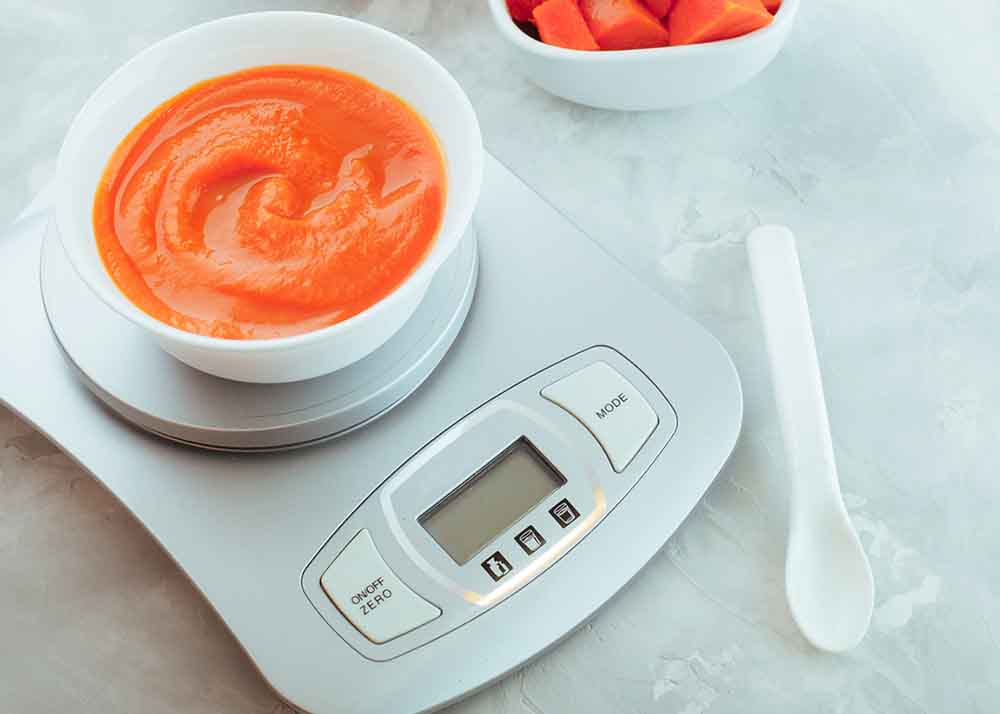
This article was updated on December 3rd, 2023
If your dog’s poop looks like jelly with blood, you’re probably wondering, “how serious is this?” And it’s important to ask that question: poop that contains jelly-like mucus is alarming, and sometimes it should be. But other times, the symptoms are fairly benign.
You should collect a sample and call your vet to figure out what’s going on. In this article, we will also review home remedies that can help, but it’s important not to delay veterinarian treatment.
How can I help my dog at home today?
If your pup’s symptoms don’t point to an emergency and your dog is not showing other signs of illness, there are some things you can do at home to help him feel better while you’re waiting for his appointment:
1. Put your dog on an 8-24-hour fast
Give your dog’s gut a break by skipping one or two meals and withholding treats. How long you keep your pup on water only will depend on his size, age, and the severity of diarrhea. Smaller breeds or puppies have higher metabolisms and cannot go long without food.
2. Try a bland diet
Don’t immediately return to your dog’s usual food after fasting. The gut may still be sensitive. Instead, feed a bland diet that’s gentle on the digestive system.
You can talk to your vet about an easily digestible commercial diet such as Hill’s Science Diet i/d canned food. Another option is to make your dog’s food at home. Use a low-fat protein such as boiled hamburger or cooked chicken and a digestible grain like brown or white rice. Learn more about the best bland diets for dogs.
3. Give your dog ample fluids
Always have water available for your pup. Liquid intake helps to restore the fluids lost through diarrhea. One ounce per pound is a rough estimate of how much water your dog should have.
If your pooch is reluctant to drink water, you can try a 50/50 mixture of sodium-free chicken or beef broth to make it more appealing. You can also try giving him unflavored Pedialyte.
4. Give your dog a quality probiotic
Supplementation with a quality probiotic can soothe the stomach and support gut health. When used to treat diarrhea, they can help normalize the stool and inhibit the growth of harmful bacteria.
- Number one probiotic supplement recommended by veterinarians (Kantar Veterinary Tracker, 2020)
Are there any over-the-counter or natural products I can use?
There are several over-the-counter and natural remedies that can help neutralize harmful chemicals in your dog’s gut and normalize the stool. However, before you attempt to medicate your pooch at home, talk to your veterinarian.
Over-the-counter remedies
- Activated charcoal tablets may help neutralize toxins in your dog’s gut if he has a severe case of diarrhea.
- Kaopectate or anti-diarrheal treatments for dogs are other over-the-counter treatments for gloppy stools or diarrhea. Before using one of these products, speak with your veterinarian. The doctor can give you the dosage or tell you if there are any reasons your dog shouldn’t have the remedy.
Natural or homemade remedies
- Rice water can help bind and firm up the stool. You can make rice water by boiling high-quality rice in a pot full of water. After you remove the cooked grains, cool the creamy-white liquid, and offer it to your pup. You may need to add some low-sodium broth or baby food to make it more palatable.
- Pumpkin is an excellent source of fiber and can help treat both diarrhea and constipation. You can use pumpkin puree, canned pumpkin for dogs, or pumpkin powder. Give your dog 1-4 tsp per meal (depending on their weight).

How do I know when it’s time to see my vet?
Jelly-like mucus in the poop isn’t always an emergency. However, call your vet as soon as you can to schedule an appointment if you see blood in the stool. Remember to share the symptoms and collect a fecal exam for analysis.
You should contact your veterinarian immediately if your dog’s poop looks like a blob of raspberry jam, he’s vomiting repeatedly, or there’s any other bleeding. These symptoms can mean your pooch needs care as soon as possible.
How long will it take for my dog to recover?
The duration of jelly-like poop in dogs varies depending on the underlying condition. Unless your dog has a serious condition that requires specialized treatment such as antibiotics, they usually recover fairly quickly. For example, the average recovery time for dogs with Acute Hemorrhagic Diarrhea Syndrome is 24-72 hours.
If you’re treating your dog at home for more than a few days, contact your veterinarian for further workup. Your pooch may require a more aggressive course of treatment.
5 veterinarian tips for prevention
Immediately after treatment, be careful to follow your veterinarian’s instructions for after-care. Don’t make any dietary changes for at least a few weeks after your pal recovers to avoid upsetting the gut. Monitor your dog’s stools and behavior to catch any signs of a relapse.
Once your pooch is in the clear for the original bout of mucus and blood in his poop, you can take several long-term preventative measures:
1. Stay up-to-date on vaccinations
Sometimes jelly-like-poop with blood is caused by infectious diseases like parvovirus or canine coronavirus. By keeping your fur baby up-to-date on vaccinations, you can help to prevent these viruses from attacking your dog’s gut.
2. Give your dog heartworm preventatives
The anthelmintic drugs, commonly used in heartworm preventatives, also work against many intestinal parasites, including roundworms and hookworms. By keeping your pooch on a monthly heartworm dose, you’re also helping to prevent the parasites that can cause mucus and blood in the poop.
3. Give your dog probiotics
Talk to your veterinarian about recommendations for a quality probiotic. These supplements help to balance healthy microflora in the gut. They can also strengthen immunity and improve digestion in your pooch.
4. Don’t feed your dog table scraps
Table scraps and human foods are often too rich for your pup’s gut. Additionally, they often contain too much salt or other nutrients for dogs. Avoid feeding your fur baby from the table to prevent irritating his sensitive stomach.
5. Feed your dog a quality diet
When feeding dogs with a history of irritable bowels or a sensitive stomach, choose a quality diet. Focus on readily digestible ingredients, prebiotic fiber, and limited ingredients.
Learn more about blood in dog stools.
Disclaimer: This website's content is not a substitute for veterinary care. Always consult with your veterinarian for healthcare decisions. Read More.



Be the first to comment